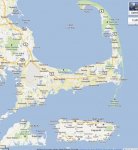KBCraig
Regular Member
1st U.S. Circuit Court of Appeals: right to record in public is "well established"
I haven't finished reading the opinion yet, but a 1st Circuit panel ruled in favor of a man who sued Boston police under 42 USC 1983, over arresting him for recording them in public.
http://www.ca1.uscourts.gov/pdf.opinions/10-1764P-01A.pdf
When Glik sued, the police moved for dismissal and claimed qualified immunity "because it is not well-settled that he had a constitutional right to record the officers." The federal district court denied the motion because "in the First Circuit . . . this First Amendment right publicly to record the activities of police officers on public business is established."
The court of appeals agreed.
"It is of no significance that the present case . . . involves a private individual, and not a reporter, gathering information about public officials. The First Amendment right to gather news is, as the Court has often noted, not one that inures solely to the benefit of the news media; rather, the public's right of access to information is coextensive with that of the press."
"In our society, police officers are expected to endure significant burdens caused by citizens' exercise of their First Amendment rights."
The ruling applies in Massachusetts, Maine, New Hampshire, Rhode Island, and Puerto Rico. How Puerto Rico wound up in New England, I have no idea.
I haven't finished reading the opinion yet, but a 1st Circuit panel ruled in favor of a man who sued Boston police under 42 USC 1983, over arresting him for recording them in public.
http://www.ca1.uscourts.gov/pdf.opinions/10-1764P-01A.pdf
When Glik sued, the police moved for dismissal and claimed qualified immunity "because it is not well-settled that he had a constitutional right to record the officers." The federal district court denied the motion because "in the First Circuit . . . this First Amendment right publicly to record the activities of police officers on public business is established."
The court of appeals agreed.
"It is of no significance that the present case . . . involves a private individual, and not a reporter, gathering information about public officials. The First Amendment right to gather news is, as the Court has often noted, not one that inures solely to the benefit of the news media; rather, the public's right of access to information is coextensive with that of the press."
"In our society, police officers are expected to endure significant burdens caused by citizens' exercise of their First Amendment rights."
The ruling applies in Massachusetts, Maine, New Hampshire, Rhode Island, and Puerto Rico. How Puerto Rico wound up in New England, I have no idea.

